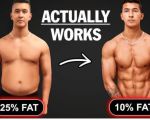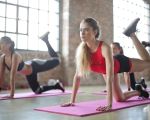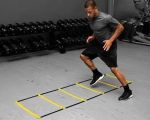Expert Interviews with Fitness Professionals: Tips for a Healthier Life
Over the years, I’ve been dedicated to improving my fitness, and along the way, I’ve encountered a wide range of advice and strategies. But no matter how much I read or tried on my own, it wasn’t until I started having conversations with fitness professionals that I truly understood the deeper nuances of health and fitness. These experts bring years of experience, research, and practice to the table, making their advice invaluable when it comes to building a sustainable and effective fitness routine. In this article, I want to share some of the most insightful takeaways from my interviews with fitness professionals—insights that have personally transformed my approach to fitness.
The world of fitness is vast, with countless trends and conflicting advice. With so much information out there, it can be overwhelming to figure out what works best. That’s why expert advice is crucial. When speaking with professionals in the fitness industry, I learned about the science behind certain techniques, the best practices for long-term health, and the small adjustments that can make a huge difference. I believe that hearing directly from these experts will help you, too, whether you’re just getting started or looking to take your fitness journey to the next level.
1. The Importance of a Balanced Approach
One of the first things I learned from fitness professionals is the importance of balance. Many of us tend to focus on just one aspect of fitness—whether it’s cardio, strength training, or flexibility—but the key to long-term success is integrating all these elements into a balanced routine. I spoke with Sarah Johnson, a certified personal trainer with over 15 years of experience, who emphasized that “a well-rounded fitness regimen should include aerobic exercises, strength training, and flexibility work. Neglecting any one of these can limit your progress and increase your risk of injury.”
Sarah explained that combining different types of exercise not only improves overall fitness but also ensures that you avoid plateaus. By switching up your workouts, you can keep your body challenged and engaged, leading to better results. I found this advice especially useful because, in the past, I had often neglected flexibility or focused solely on cardio. After implementing her suggestions, I noticed significant improvements in my endurance, strength, and mobility.
2. Nutrition: Fueling Your Body for Success
When it comes to fitness, nutrition is just as important as exercise. One of the most consistent pieces of advice I received during my interviews with experts was to pay attention to what I put into my body. I spoke with Jason Miller, a nutritionist specializing in sports nutrition, who explained, “Proper nutrition is the foundation of any fitness journey. Without the right fuel, your body won’t perform at its best, and recovery will be slower.”
Jason shared with me that fueling your body with the right mix of macronutrients—proteins, carbohydrates, and healthy fats—ensures that you have the energy for your workouts and the nutrients your body needs to recover afterward. He also emphasized the importance of staying hydrated, noting that “dehydration can impair your performance and hinder recovery.” After following his advice to incorporate more protein-rich meals and focus on balanced eating, I noticed a significant improvement in my energy levels during workouts and my overall recovery time.
3. The Mental Side of Fitness
While physical strength is a huge part of fitness, the mental aspect is just as critical. During my interviews with experts, I began to see that fitness is as much about mental resilience as it is about physical endurance. Dr. Emily Parker, a fitness psychologist, told me, “A positive mindset is essential for long-term fitness success. You need to set realistic goals, stay consistent, and develop mental toughness to push through difficult workouts.”
Dr. Parker explained that mental barriers often prevent people from reaching their fitness potential. She suggested using techniques like visualization and mindfulness to stay focused and motivated during workouts. I decided to try her method of setting small, achievable goals for each workout and using positive affirmations to stay motivated. This mental shift helped me push through tough days and stay consistent, even when the results weren’t immediate.
4. Avoiding Common Mistakes and Injuries
Another crucial part of my conversations with fitness professionals was learning about the common mistakes people make when trying to get fit. One of the most insightful tips came from Coach Mark Williams, a certified strength and conditioning specialist, who shared that “people often skip proper warm-ups and cool-downs, which can lead to injuries down the line.” He explained that not warming up properly before a workout can increase your chances of straining muscles, while skipping the cool-down can lead to stiffness and discomfort later.
Taking Mark’s advice to heart, I began to include dynamic stretches before my workouts and static stretches afterward. I also started focusing more on proper form during strength training exercises, as poor technique can easily lead to overuse injuries. By paying closer attention to these details, I’ve not only improved my performance but also significantly reduced the risk of injury.
5. Consistency and Patience Are Key
Perhaps the most valuable lesson I learned from speaking with fitness professionals is the importance of consistency. It’s easy to get discouraged when you don’t see immediate results, but as personal trainer John Davis pointed out, “Fitness is a journey, not a sprint. You need to be patient and stay consistent, even when you’re not seeing instant progress.”
John explained that building lasting fitness habits requires time and dedication. He suggested that I track my progress, celebrate small victories, and stay focused on the long-term benefits. I took his advice to heart, and over time, I saw my strength, endurance, and overall fitness improve in ways I hadn’t expected. This shift in perspective helped me realize that fitness isn’t about quick fixes—it’s about creating sustainable habits that lead to long-term success.
6. Finding the Right Expert for Your Fitness Journey
One of the key takeaways from my interviews with fitness professionals is that not every fitness expert is right for everyone. Depending on your goals, needs, and personality, you may need a different kind of trainer or coach. It’s important to find someone who understands your specific objectives and can guide you in a way that feels motivating and supportive. For instance, if you’re looking to build muscle, you may want a strength coach, while if you’re looking for weight loss, a nutritionist or a fitness coach with expertise in fat loss might be a better fit.
Throughout my fitness journey, I’ve realized that finding the right professional can make all the difference. I highly recommend taking the time to find someone whose approach resonates with you, and whose expertise matches your goals. For those seeking expert guidance, visit [Fitness] for more resources and recommendations to find the best professional for your needs.








